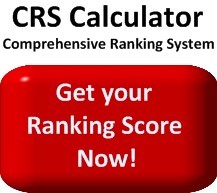IRCC Makes Job Bank Registration Voluntary for all Express Entry Candidates
Immigration, Refugees and Citizenship Canada (IRCC) has made registration in the Job Bank voluntary for all Express Entry candidates. For nearly two-and-a-half years, this had been a mandatory step for candidates without a qualifying job offer or a provincial nomination.
Until June 6, 2017, the profiles of such candidates who did not register with Job Bank within 30 days expired. Individuals without a job offer or a provincial nomination, and who had not yet registered in Job Bank, were ineligible for selection during IRCC’s draws from the pool. However, as of June 6, this is no longer the case.
“Up until now, if you didn’t have a job offer or a provincial nomination, you had to go and register with Job Bank first before you could get into the Express Entry pool,” said a Senior Policy Analyst from IRCC at a Canadian immigration summit held in Ottawa last month.
“We didn’t find that there were a lot of matches that were taking place in Job Bank. There were some, and we want that to continue, so we’re allowing people to go to Job Bank on an optional basis instead of as a required step.”
The Job Bank is a free government-supported resource that aims to connect employers with potential employees based on workers’ skills and experience, and for that reason Express Entry candidates may see value in having a presence there.
However, the fact that they are no longer obliged to register in the Job Bank means that building an Express Entry profile is now a simpler process. As before, candidates and employers alike can engage in other recruitment methods, such as other online job search tools and traditional networking practices, such as building connections and securing interviews on the ground or remotely.
A shift in focus
When Express Entry was first rolled out under the previous Conservative government, the role of employers in the process was front and centre in how the system was presented and organized. Over time, however — and this is especially the case under the current Liberal government — a more nuanced system has evolved, taking into account candidates’ long-term human capital potential for economic success.
Prior to the changes that came into effect on June 6, IRCC sought to ‘balance the Comprehensive Ranking System [CRS] to put greater weight on human capital, skills and experience.’ Its main method of accomplishing this aim was to change the number of CRS points that are available for a qualifying job offer, from 600 points down to 50 or 200 points, depending on the position offered. This change was brought in last November.
At the same time, a change was made so that certain foreign workers in Canada working on employer-specific work permits could obtain these points without having to obtain a Labour Market Impact Assessment (LMIA), a document showing that no Canadian citizens or permanent residents were ready, willing, and able to perform the job. Furthermore, the job offer duration requirement was altered, from indeterminate to at least one year in duration.
Together, these improvements expanded the range of candidates who could benefit from additional points for a qualifying job offer, while at the same time reducing the guarantee that a job offer would lead to the issuance of an ITA. In effect, it has given more candidates a chance of getting an ITA.
As Express Entry has developed, and as more draws occurred and continue to occur, an increasing number of candidates have been in line to obtain an ITA without needing to secure a job offer or a provincial nomination. The improvements made to the system, combined with an increase in the number of ITAs issued and a corresponding decrease in the CRS cut-off threshold, has meant that more candidates are invited based on human capital factors alone.
Although the share of candidates invited with a job offer fluctuates from draw to draw, sometimes increasing and sometimes decreasing, the longer-term trend has been towards a system that invites a larger share of candidates without a job offer.

Into 2016, smaller invitation rounds (draws) were held between March and August. In its year-end report for 2016, IRCC states that this was ‘to allow the department to continue processing applications received prior to the launch of Express Entry,’ and as a result ‘a larger share of foreign nationals with a job offer or a provincial nomination were invited’ because the smaller draws led to higher CRS cut-off thresholds during those months.
The upshot was that as draw sizes increased from around 750 candidates drawn to nearly 3,000 candidates drawn in invitation rounds towards the end of 2016, the share of candidates with a job offer went down, allowing IRCC, in its own words, ‘to attract the top talent in the world, including former international students, experienced professionals and talented workers who will strengthen Canada’s competiveness in the global marketplace.’ Over the opening few months of 2017, IRCC has selected in the range of 3,500 to 4,000 candidates in most draws.

“Exactly how the next period in the history of Express Entry plays out remains to be seen, but the moves made by IRCC show a clear intent to continue to invite more candidates based on their human capital factors, skills and experience,” says Attorney David Cohen.
“We have seen this intent not just in words, but also in actions. Now is the time for people around the world to take advantage of the opportunity by creating an Express Entry profile and taking steps to increase their chances of being invited to apply for permanent residence.”
The CRS Calculator
 Candidates in the Express Entry pool, as well as individuals thinking of creating an Express Entry profile, can use the new and improved CRS Calculator to find out their score would be under the newly revised CRS points system.
Candidates in the Express Entry pool, as well as individuals thinking of creating an Express Entry profile, can use the new and improved CRS Calculator to find out their score would be under the newly revised CRS points system.
To find out if you are eligible to immigrate to Canada permanently, fill out a free online assessment form.
Candidates who have received an ITA and want to learn more about the next steps may complete this short form.
© 2017 CICNews All Rights Reserved
- Do you need Canadian immigration assistance? Contact the Contact Cohen Immigration Law firm by completing our form
- Send us your feedback or your non-legal assistance questions by emailing us at media@canadavisa.com






